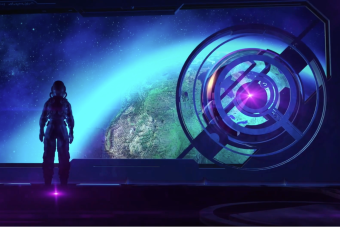Turnkey Solution for CS Success
We offer a robust combination of engaging curriculum, detailed instructional guidance, personalized support, and cutting-edge platform tools designed to maximize teacher effectiveness and student outcomes. Our annual licenses occur on a per teacher basis, and include access to comprehensive curriculum, ongoing teacher support, and Codio platform accounts for all the students in your UTeach CS course.
Curriculum Features
Jump to resources included in each license:
- Comprehensive, Classroom-Ready Teacher Materials
- Engaging Student Materials Accessible from Any Device
- Ongoing, On-Demand Teacher Support
Project-Based Approach Boosts Engagement and Achievement
UTeach Computer Science curriculum engages students in authentic learning through project-based instruction, an evidence-based approach that encourages problem solving, critical thinking, and group collaboration. In addition to building soft skills essential for future careers, project-based learning has also been proven to elevate student engagement, enhance teacher satisfaction, and strengthen academic achievement.
UTeach CS curriculum features real-world projects that students find personally meaningful, with the explicit intention of motivating all students to pursue computer science. Teachers access our project-based curriculum through Codio, a cloud-based platform that offers easy LMS integration and evidence-based tools specifically designed for computer science education.
By Teachers, For Teachers
The UTeach CS curriculum is the product of ongoing collaboration between highly experienced and successful secondary computer science teachers and researchers, professors, and thought leaders at The University of Texas at Austin.
Each year, hundreds of teachers teach our courses around the world. Our teachers continually help shape and improve the curriculum and support each other by sharing resources and crowdsourcing solutions.
Recommended: Pair your curriculum license with professional development. Take a look at our package options.

Comprehensive, Classroom-Ready Teacher Materials
Teachers should expect success the first time teaching a course. That’s why we provide teachers with comprehensive, classroom-ready instructional materials that are fully customizable:
- Seamless teaching experience with comprehensive lesson plans, interactive student textbook, embedded teacher guidance, student assessments, integrated programming environments, and gradebook all in one place
- Teacher-tested lesson plans include instructions for facilitating each lesson, pacing guides, recommendations for synchronous and asynchronous learning, instructional strategies, example projects, single point rubrics, discussion questions, vocabulary terms, and embedded teacher guidance
- Formative and summative assessments include multiple choice questions, reflection questions, Parsons Problems, fill in the blank questions, coding assignments, open-ended projects, AP-style review questions, and AP-style unit exams
- Resources for meeting College Board course requirements include a College Board–approved syllabus and lessons directly aligned with AP topics and skills so teachers can easily connect classroom learning to additional AP Classroom resources
- Easy LMS integration streamlines account creation, single sign-on, and grade passthrough to other learning management systems including Canvas, Schoology, Blackboard, Moodle, and more
- Collaboration and academic integrity tools make it easier to improve student outcomes through features like pair programming, Parsons Problems, in-line code commenting, code playback, plagiarism checker, Learner Behavior Insights dashboard, and an AI-powered learning assistant
- Auto-grading helps teachers grade 75% faster
Explore more details about the included Codio tools that optimize students' engagement, satisfaction, and performance while also providing teachers with insights into student learning that allow for more personalized feedback and intervention.
Engaging Student Materials Accessible from Any Device
UTeach Computer Science provides Codio accounts for partner teachers and their students to access our convenient online student textbook, which includes course readings, assignments, and project rubrics. Programming assignments are completed through a cloud-based, Chromebook-compatible integrated development environment (IDE), and no additional materials are required.
- Seamless learning experience with interactive student textbook, embedded assessments, and built-in programming environment all in one place
- Auto-graded formative assessments provide students with instant feedback and detailed explanations
- Student view and code playback give teachers direct insight into student progress
- Dashboard provides students with an easy-to-understand snapshot of upcoming assignments, grades, and teacher feedback
- All student accounts included with your annual teacher license
Ongoing, On-Demand Teacher Support
UTeach Computer Science offers unlimited, on-demand support on all aspects of course implementation to ensure teacher success. Partner teachers have a variety of support options whenever they need expert guidance on curricular materials, computer science content, pedagogical strategies, pacing, technical issues, or AP requirements.
- On-demand support by email, phone, or video with dedicated teacher support specialists who are experienced high school computer science teachers
- Individualized coaching on computer science content, instructional strategies, pacing, and AP requirements
- Support videos providing just-in-time guidance on meeting College Board requirements, implementing inquiry-based pedagogical practices, and applying strategies for broadening participation in computer science
- Professional learning community, facilitated by the UTeach Computer Science team, where teachers can connect with each other in private groups and monthly meetups to share resources, challenges, and successes




